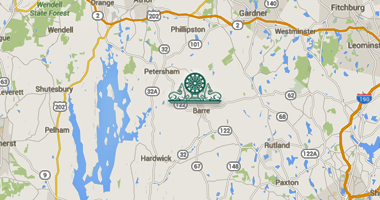We all are vulnerable to the pull of craving (and the push of aversion). Craving is at the very heart of Buddhist teachings, beginning with the Four Noble Truths and permeating nearly every aspect of theory and training. Yet, how does this manifest in modern life? Why do we seemingly get more and more hooked in our current existence, from drinking alcohol or using drugs, to checking email, to reading the news headlines, to yelling at someone in a fit of self-righteous indignation? Understanding the core underpinnings of how habitual behavior is formed and perpetuated is critical for helping us break out of these cycles. Ancient Buddhist teachings are now lining up surprisingly well with modern-day psychology and neuroscience in their descriptions of the mechanistic underpinnings of samsaric existence –the habitual perpetuation of suffering driven by craving and aversion. Additionally, insights from these “sciences” clearly point to pragmatic tools for awakening, whether waking from a daydream or breaking lifelong addictions. In this program, we will combine lecture, discussion, and experiential practices to carefully unpack our lived experience of craving and how we can step out of our own cycles of suffering that are fueled by it. Topics will range from dependent origination to operant conditioning, to the neuroscience underlying these processes. This program will bring together insights from the practice and teaching in clinical work with patients with a range of addictions, and the latest neuroscientific discoveries from the Center for Mindfulness’ research lab to combine conceptual learning with direct experience, in the service of the development of wisdom. A key focus of the program will be to learn how ancient wisdom is brought together with modern science and technology in order to develop practical tangible tools that we can use in our own lives, and step out of our own cycles of suffering. Recommended reading: The Craving Mind: From Cigarettes to Smartphones to Love, Why We Get Addicted and How We Can Break Unhealthy Habits by Judson Brewer (Yale U. Press, 2017)
Barre Center for Buddhist Studies
Barre Center for Buddhist Studies

- This event has passed.
Craving Mind: Getting Hooked, and Stepping Out of Our Samsaric Habit Loops
Residential Program
Dates: Apr 20, 2018 - Apr 22, 2018
Days: Friday - Sunday
Number of Nights: 2 nights
Instructor(s): Judson Brewer, MD PhD
Course Navigation
Continuing Education:
Continuing education units are available to psychologists and social workers.
-
About the Instructor(s):
-
Jud Brewer MD Ph.D. (“Dr. Jud”) is a New York Times best-selling author and thought leader in the field of habit change and the “science of self-mastery,” having combined over 25 years of experience with mindfulness training with his scientific research therein. He is the Director of Research and Innovation at the Mindfulness Center and associate professor in Behavioral and Social Sciences and Psychiatry at the Schools of Public Health & Medicine at Brown University. A psychiatrist and internationally known expert in mindfulness training for addictions, Brewer has developed and tested novel mindfulness programs for habit change, including in-person and app-based treatments for smoking, emotional eating, and anxiety. He has also studied the underlying neural mechanisms of mindfulness using standard and real-time fMRI and EEG neurofeedback. Dr. Brewer founded MindSciences (which merged with Sharecare Inc. in 2020) to move his discoveries of clinical evidence behind mindfulness for anxiety, eating, smoking, and other behavior changes into the hands of consumers (see www.drjud.com for more information). He is the author of The Craving Mind: from cigarettes to smartphones to love, why we get hooked and how we can break bad habits (New Haven: Yale University Press, 2017), the New York Times best-seller Unwinding Anxiety: New Science Shows How to Break the Cycles of Worry and Fear to Heal Your Mind (Avery/Penguin Random House, 2021) and the forthcoming book The Hunger Habit: why we eat when we’re not hungry and how to stop (Avery/Penguin Random House, 2024). Follow him on twitter @judbrewer.



